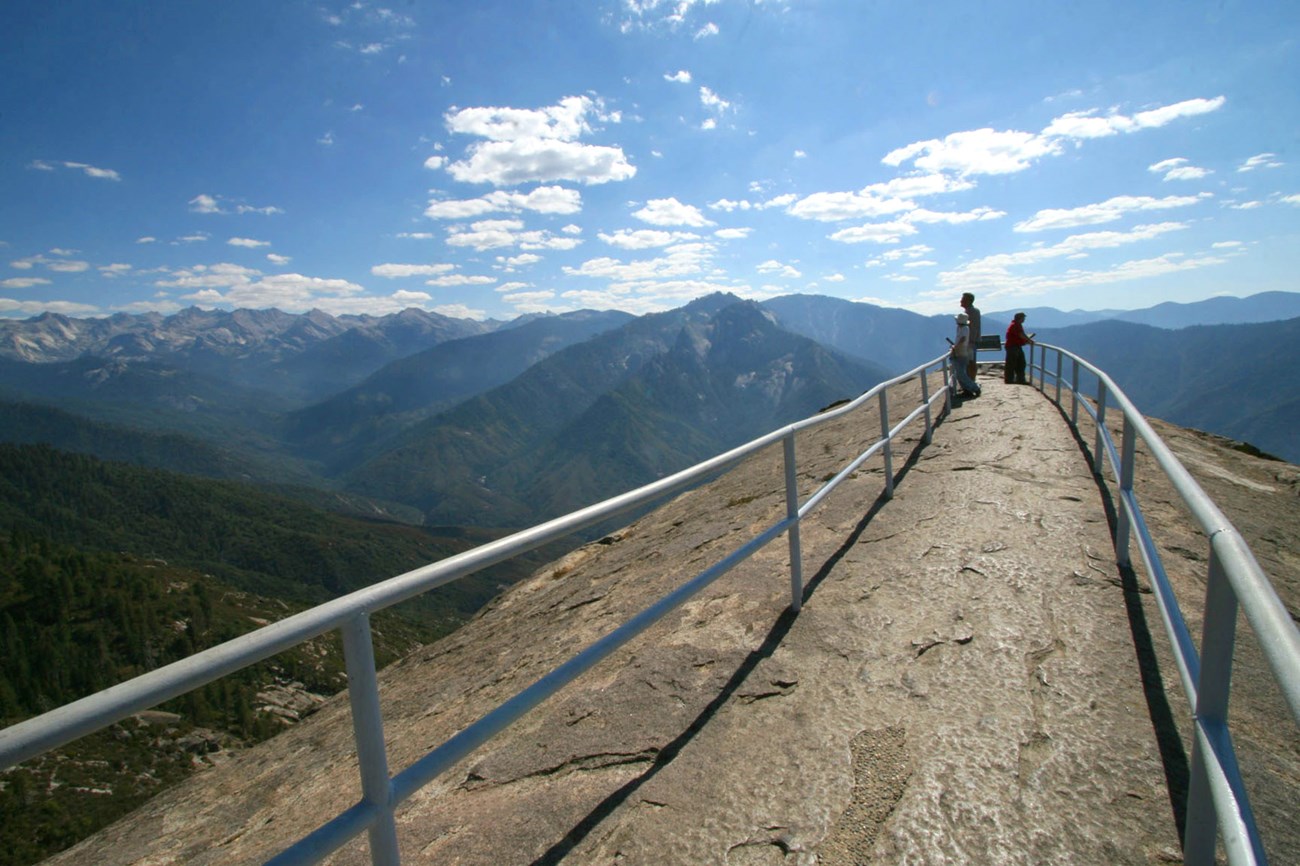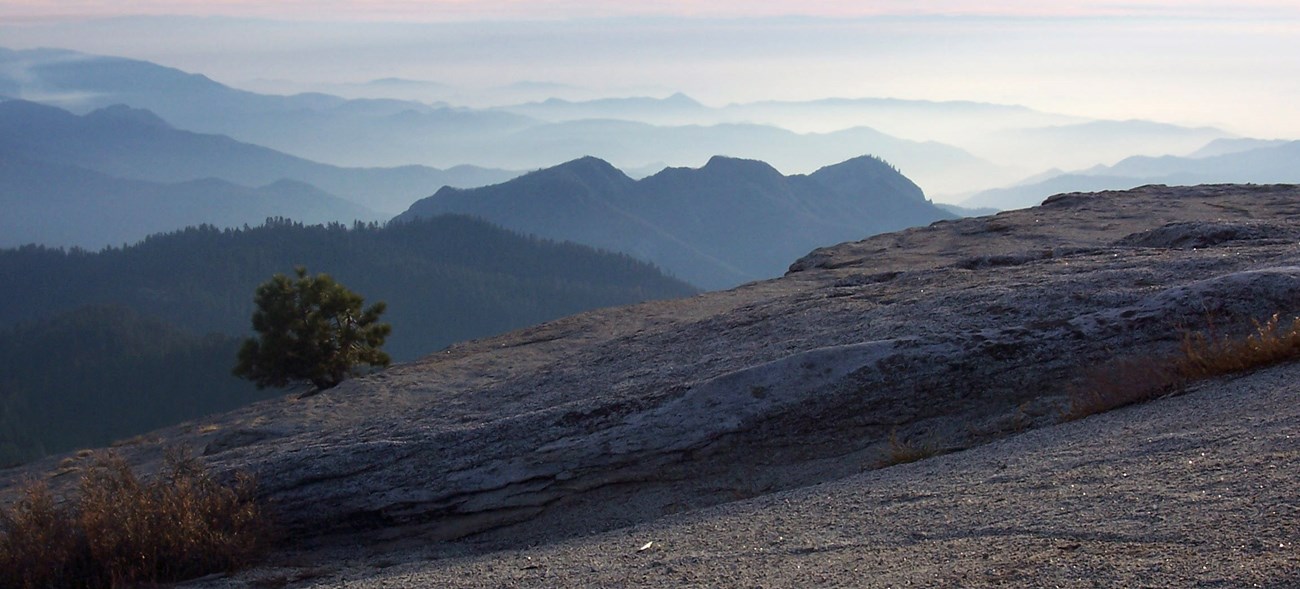
Paul G. Johnson Moro RockAs you enter Sequoia National Park, Moro Rock looms overhead, thousands of feet above the highway. This large granite dome is a spectacular geologic feature that can be enjoyed from above or below. A concrete and stone stairway leads over 350 steps to the top of Moro Rock. Even just a short distance from the parking area and above the forests's canopy, the Great Western Divide's peaks become visible. As you climb, views open up from the foothills and San Joaquin Valley to the west, to deep into wilderness to the east. Handrails along the way make the climb relatively safe, though you should keep a close eye on small children because of steep dropoffs along the entire route. The hike can be strenuous; taking your time as you climb can help you adjust to the thinner air at higher elevations. In summer, free shuttles run from Giant Forest Museum to the Moro Rock parking area. On weekends, the road closes to private vehicles and shuttles are the only way to reach Moro Rock and Crescent Meadow. On weekdays, the road remains open, but the small parking area may fill. Peregrine falcons nest on Moro Rock in summer, and there are usually climbing closures for technical rock climbers to protect nests. These closures don't affect hikers using the stairway. In winter, Moro Rock / Crescent Meadow Road closes with snow. Though ski trails lead to the parking area, the stairway is closed due to the danger of the icy or snowy steps. Little BaldyThis granite dome may not be as visible as Moro Rock from below, but views from its peak are also spectacular. At the northern end of Sequoia National Park near Dorst Campground, the Little Baldy Trail climbs 1.7 miles (2.7 km) along steep switchbacks, gaining 1,000 feet (300 m) in elevation. At the top, look east to Mount Silliman, Alta Peak, and the Great Western Divide. To the west, views extend over mountain ranges into the foothills on clear days. In summer, dozens of species of wildflowers can be seen blooming along the trail. If you hike the trail in July, Look for clusters of tent caterpillars emerging from weblike nests on shrubs along the trail.

Cathy Purchis Big BaldyUnlike other trails that climb to the top of granite domes, the Big Baldy Trail climbs gently along a ridge, gaining about 600 feet (200 m) in elevation along 2.2 miles (3.5 km). It starts in Sequoia National Forest near the boundary of Kings Canyon National Park, and enters the park within the first quarter-mile.
Beetle Rock and Sunset RockThese two granite domes are in Giant Forest. Beetle Rock, perhaps the easiest dome to access in these parks, is across the highway from Giant Forest Museum. From the main museum parking area, look for wooden signs that point the way along the five-minute walk. The flat trail leads directly to the top of the dome and to views that extend into the foothills. The top of Beetle Rock is a great place for a picnic. A one-mile (1.6 km) trail that begins at either the Giant Forest Museum parking area or Big Trees trailhead leads to Sunset Rock. The trail is nearly flat and passes a small meadow called Eli's Paradise. As the name implies, Sunset Rock is a great place to watch the sun go down. If you hike in the late evening, bring a flashlight for the return trip and be prepared for mosquitoes. Wilderness Granite DomesFin Dome, Tehipite Dome, and the Obelisk are towering rocks that are exceptional examples of granite exfoliation. Other smaller domes can be seen throughout these parks.

NPS Photo Rock ClimbingMany of the domes mentioned above have established climbing routes for experienced technical climbers. If you're interested in climbing here, begin by reading general information about rock climbing in these parks. For route information and other details, check online at climbing websites. For More Information |
Last updated: August 21, 2024
